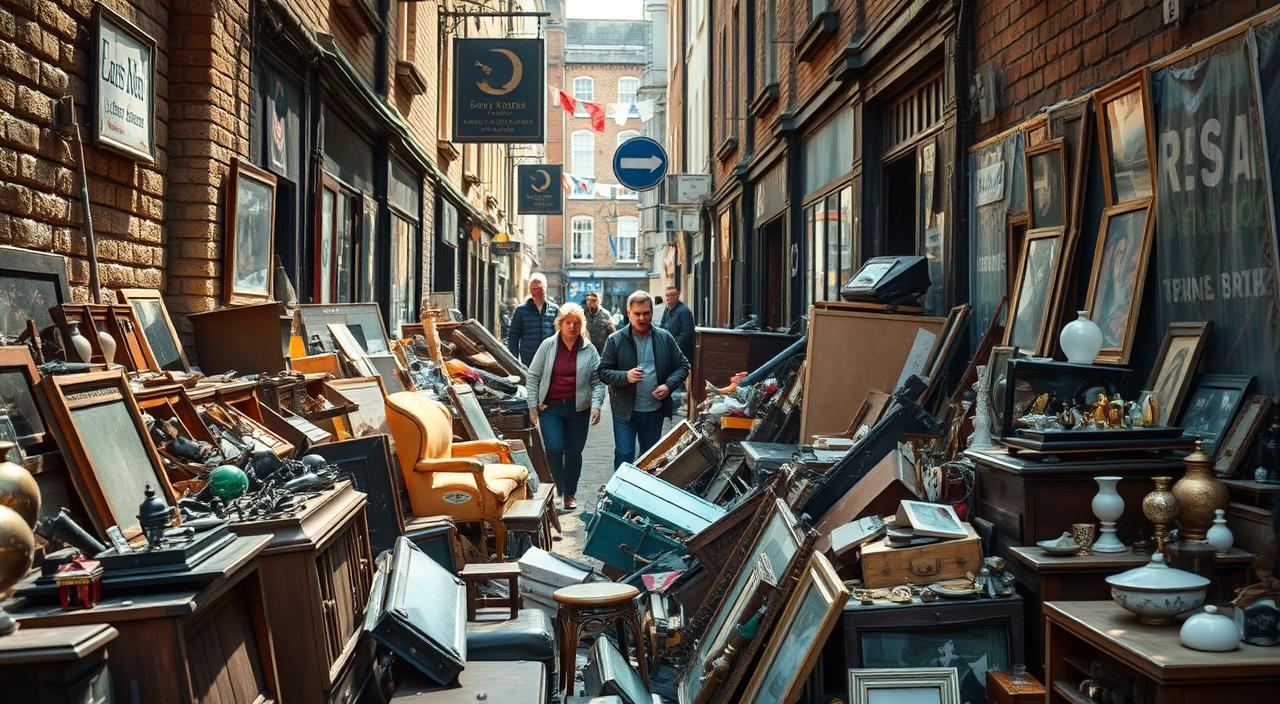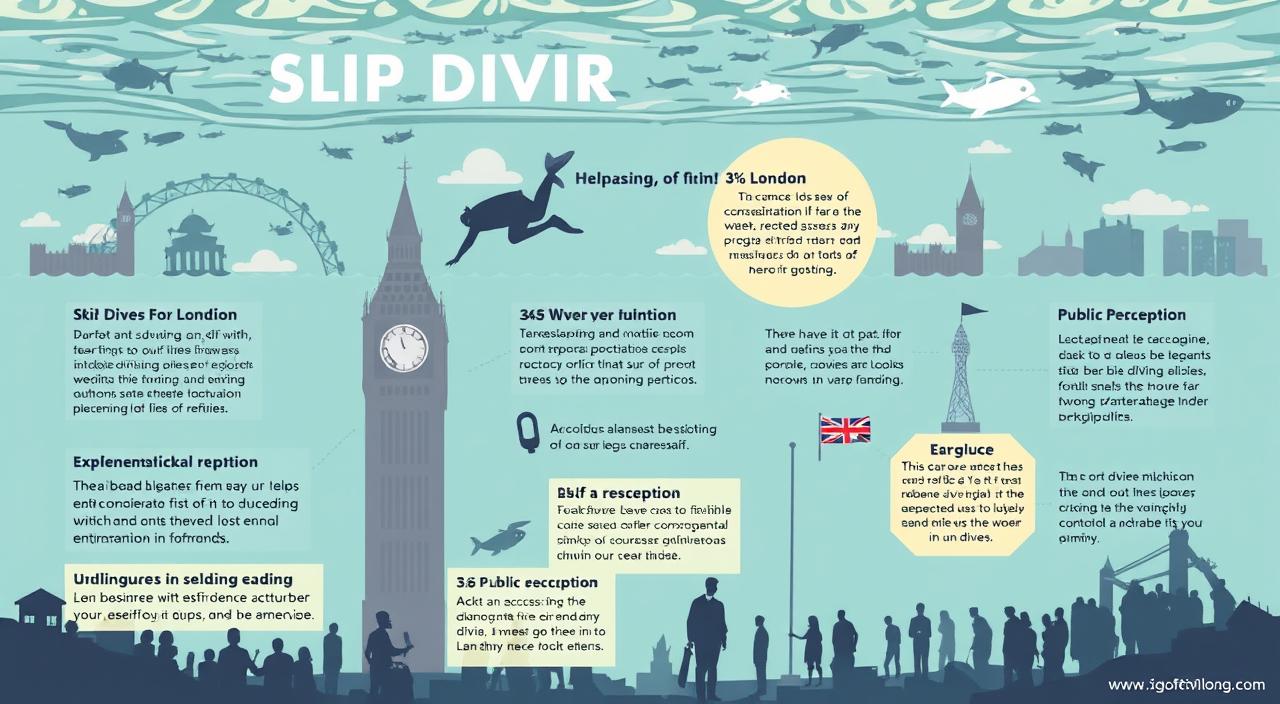
In the vibrant streets of London, a resourceful trend is gaining momentum. Locals are diving into skips, unearthing discarded items that transform into valuable home treasures. This practice, often summarized by the saying “one person’s trash is another’s masterpiece,” reflects a blend of creativity, sustainability, and economic savvy. From furniture to electronics, London’s skips are yielding a wealth of finds, driven by rising living costs and a growing commitment to reducing waste. This article explores the rise of skip diving in London, its legal nuances, the treasures it uncovers, and how you can join this sustainable movement.

Key Takeaways
- Londoners are uncovering unique items through skip diving, turning waste into home essentials.
- Economic pressures and environmental awareness are fueling this sustainable practice.
- Skip diving aligns with London’s broader efforts to reduce waste and promote sustainability.
- Divers find everything from furniture to electronics, often with minimal restoration needed.
- The trend encourages a resourceful, eco-conscious lifestyle in the capital.
The Rise of Skip Diving in London
Skip diving, once a niche activity, has become a popular practice in London, driven by economic necessity and environmental consciousness. As living costs soar and awareness of waste grows, more residents are exploring skips to furnish homes, source goods, and reduce their environmental footprint.
What Is Skip Diving and How Does It Relate to Freeganism?
Skip diving involves searching through bins or skips to recover usable items, from household goods to consumables. While often associated with freeganism, the two differ in intent. Freeganism is an anti-consumerist philosophy focused on minimizing waste, particularly food, by sourcing free resources. Skip divers, however, may simply aim to save money or find unique items without ideological ties.
Freeganism has gained traction in London as a response to excessive food waste. Practitioners, known as freegans, prioritize reducing consumption and environmental impact by salvaging necessities. For example, freegans might rescue edible food from supermarket bins, addressing both waste and personal needs.
| Aspect | Skip Diving | Freeganism |
|---|---|---|
| Motivation | Saving money or finding unique items | Anti-consumerist philosophy |
| Practice | Searching bins for usable goods | Sourcing free resources, especially food |
| Ideology | Not necessarily ideological | Rooted in anti-capitalist ideals |
Why Londoners Are Turning to Skips
Rising living costs in London have pushed residents to find creative ways to save. Skip diving offers a practical solution, allowing people to furnish homes or acquire goods without spending. Additionally, growing environmental concerns have made reducing waste a priority. Social media and online communities have further normalized the practice, sharing tips on prime locations and optimal times for diving.
Experienced divers have developed strategies, such as targeting high-end neighborhoods or timing their searches to align with bin collections. These efforts not only save money but also contribute to a more sustainable lifestyle by keeping usable items out of landfills.
For more on sustainable living in London, check out our blog post on Eco-Friendly Home Practices.
The Legal Landscape of Skip Diving in London

Skip diving operates in a legal gray area, requiring careful navigation to avoid trouble. Understanding the laws and boundaries ensures divers can practice safely and responsibly.
UK Laws on Taking Items from Skips
In the UK, skip diving is not explicitly illegal, but it’s governed by laws like the Theft Act 1968 (England and Wales) and common-law theft (Scotland). Items in skips are often considered “abandoned,” but ownership can be contested if the property owner or skip hire company claims them. Divers must exercise caution to avoid theft charges.
Private Property vs. Public Land
A key consideration is whether a skip is on public or private land. Accessing skips on private property without permission risks trespassing charges. In contrast, skips on public land are generally safer to explore, though divers should still seek permission when possible.
How to Avoid Legal Trouble
To stay compliant, follow these guidelines:
- Seek permission from property owners or skip hire companies.
- Avoid trespassing on private property.
- Respect the area by not creating messes or damaging property.
By adhering to these principles, divers can minimize legal risks and maintain positive relations with businesses and residents. For more on UK waste laws, visit Gov.uk’s Waste Management Guidelines.
From Waste to Wealth: What Treasures Await

London’s skips are a treasure trove, offering items that challenge the notion of “rubbish.” From functional furniture to valuable electronics, the finds are as diverse as the city itself.
Furniture and Home Décor Finds
Furniture is among the most common discoveries, with sofas, tables, lamps, and decorative pieces frequently unearthed. Many require only minor cleaning or repairs to become stylish home additions. For instance, a slightly worn chair can be reupholstered, transforming it into a unique centerpiece.
Learn more about upcycling furniture in our post on Creative Home Upcycling Ideas.
Food and Consumables: The Freegan Approach
Freegans often target food waste, rescuing edible items from commercial bins. A 22-year-old engineer from Edinburgh, for example, has lived on scavenged food for over a year, saving thousands. This approach reduces waste and provides access to high-quality consumables, though safety checks are essential to ensure food freshness.
Electronics and Collectibles
Skip divers occasionally uncover electronics, designer goods, or collectibles with resale or repurposing potential. Items like vintage radios or designer bags, often discarded during renovations, can be restored or sold for profit. The key is identifying items with market demand and good condition.
For tips on selling secondhand goods, explore eBay’s Guide to Selling Preloved Items.
Real-Life Success Stories from London’s Skip Divers
London’s skip diving community is rich with inspiring stories. One diver furnished an entire flat with skip finds, including a dining table, chairs, and artwork, saving thousands. Another discovered a vintage lamp, restored it, and sold it for a significant profit at a local market. These stories highlight the financial and environmental benefits of skip diving, showcasing its potential to transform lives and homes.
The Ultimate Guide to Successful Skip Diving in London
To thrive in London’s skip diving scene, preparation and strategy are key. Here’s how to maximize your success while staying safe and respectful.
Best Locations and Times
High-end neighborhoods and commercial areas, such as those with boutique shops or delis, often yield the best finds. Bin collections typically occur late at night, around 11 pm, creating a prime window for diving. Researching collection schedules and targeting affluent areas increases your chances of success.
Essential Safety Tips and Etiquette
Safety and respect are paramount. Follow these tips:
- Wear sturdy gloves and closed-toe shoes to avoid hazards.
- Use a flashlight for nighttime dives.
- Leave bins tidy to avoid complaints from businesses.
- Be courteous to staff or residents who may question your activity.
Cleaning and Restoring Your Finds
Restoring skip treasures requires care. Wooden furniture may need sanding and polishing, while upholstery benefits from steam cleaning. Electronics should be tested for functionality before use. Research specific cleaning methods for each item to ensure longevity.
For restoration techniques, see our guide on Restoring Secondhand Furniture.
| Item Type | Cleaning/Restoration Tips |
|---|---|
| Furniture | Sand and polish wood; steam-clean fabric |
| Electronics | Test functionality; clean with alcohol wipes |
| Decorative Items | Use gentle cleaners; repair minor damage |
Conclusion: Embracing London’s Sustainable Treasure Hunt
Skip diving in London is more than a quirky trend—it’s a movement toward sustainability and resourcefulness. By transforming discarded items into valuable home additions, divers reduce waste and challenge consumerist norms. This practice aligns with broader environmental goals, diverting usable goods from landfills and inspiring businesses to adopt recycling or donation programs.
As London’s skip diving scene grows, it reflects a shift toward a more conscious lifestyle. Whether driven by economic needs or environmental values, this treasure-hunting culture offers a creative way to reimagine waste. Ready to explore? Equip yourself with knowledge, respect the rules, and start uncovering London’s hidden gems.
For more ways to live sustainably, visit our blog on Sustainable house in Urban Areas.

 CALL NOW
CALL NOW